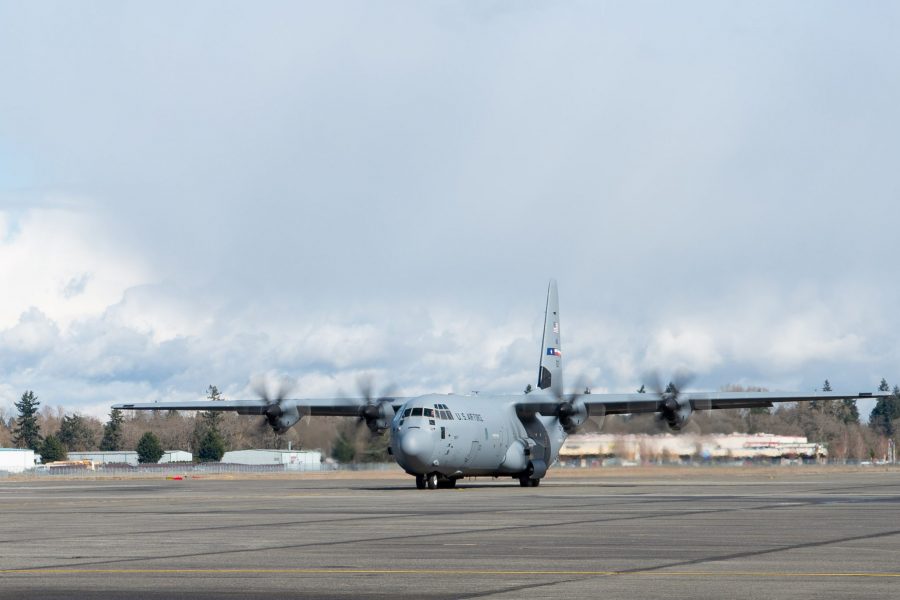Air Mobility Command will soon stop some missions and cut back others to focus on what it has deemed essential, as the new coronavirus outbreak changes how the military operates globally.
Air Force Chief of Staff Gen. David Goldfein ordered all major commands to provide a report detailing what is and is not essential, so USAF can determine which missions can temporarily be cut to free up resources and protect Airmen during the pandemic. For mobility, these essential missions include keeping the refueling tanker fleet ready to support nuclear bombers and fighters on homeland protection alert, along with continuing necessary global airlift missions and aeromedical evacuation to help with COVID-19 response, AMC Deputy Commander Lt. Gen. Jon Thomas said during an April 3 briefing.
These airlift missions include taskings in support of the State Department, the Department of Health and Human Services, and the Federal Emergency Management Agency, according to AMC.
Additionally, over the next 30-60 days, AMC Airmen who work in command and control operations centers, communications support, and cyber security will report for duty.
Missions to be cut back include exercise support, building partnership capacity, non-critical airlift, and training that is “not directly tied to our mission-critical capabilities,” AMC said in a statement. The command also has cut back on morale, welfare, and recreation activities on bases and “a whole host of other types,” Thomas said.
AMC has flown dozens of missions globally and within the U.S. to help with coronavirus response, including eight C-17 flights from Aviano Air Base, Italy, to Memphis, Tenn., to ferry millions of COVID-19 test kit swabs. The eighth flight occurred on April 3 and the ninth is scheduled for April 6. AMC was tasked with this mission, to be flown on USAF aircraft as opposed to contracted civil reserve air fleet, because of the urgency at the outset, Thomas said.
“We’re clearly getting the job done and we’re proud to do it for the nation,” he said.
C-130s also have conducted nine missions ferrying personnel and field hospital equipment to places hard-hit by the coronavirus, such as New York and Washington state. During these missions, the C-130s have flown 7.8 tons of cargo and hundreds of personnel, he said.
While the bulk of flights to return U.S. citizens from abroad have been on contracted civilian airliners, AMC brought back more than 350 personnel from places such as Honduras, Colombia, and Panama on a small number of flights.
To keep these missions flying, AMC is isolating and screening aircrews to keep them healthy. Local commanders are given leniency in how they can best address meeting required missions, including limiting movements and having Airmen such as maintainers work in more staggered shifts.
For now, the supply chain has remained stable and AMC has not had issues receiving parts to keep the aircraft flying. “Right now, we’re not seeing major limitations on our ability to sustain aircraft,” he said, adding that the service needs to be “clear-eyed about the workforces that support the aircraft from cradle to grave,” which “are composed of Americans of all ages spread across the country, ” and impacts could come in the future depending on how the outbreak spreads.

